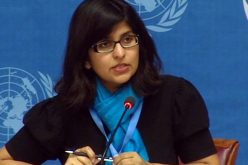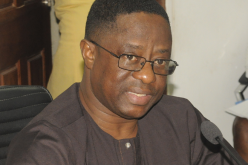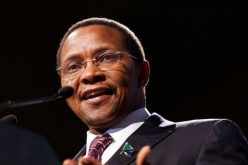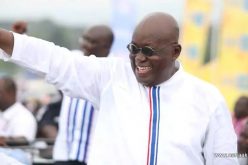
A Togolese soldier has his identity checked before casting his ballot during the early voting for the country’s parliamentary elections, at the RIT camp in Lome, July 22, 2013.
Robbie Corey-Boulet
(VOA NEWS) DAKAR, SENEGAL — The small West African nation of Togo is holding legislative elections on Thursday amid signs voters are increasingly fed up with the ruling party. Analysts say in order to win, though, the opposition will have to overcome its own divisions, as well as an electoral system vulnerable to fraud.
Negotiations over how the election would be run continued until just a few weeks ago, and major opposition parties refused to confirm until recently that they would participate.
On Tuesday, the final day of campaigning, however, all the major parties staged rallies in Togo’s capital, Lome, expressing confidence about their chances.
Hopeful opposition
The head of the opposition Rainbow Coalition, Dodji Apevon, was at a rally in Lome’s Be neighborhood. He said the government had more resources during the campaign, but he was happy with his party’s performance.
He said opposition leaders are satisfied, even though they were competing in a campaign with many constraints. But Apevon said the population is enthusiastic, the leaders are proud, and he is sure the Rainbow Coalition will have the majority in the next legislature.
The leader of the Coalition to Save Togo, the other main opposition group, Jean-Pierre Fabre, said he believes voters are ready for “fundamental change.” He said it would be important to ensure that the will of the voters is respected.
Togo has been ruled by the same family since 1967, when Eyadema Gnassingbe came to power. His son, Faure Gnassingbe, followed suit when Eyadema died in 2005, winning a flawed and violent election that year and a more credible re-election in 2010.
The past two years have seen signs of growing frustration with Togo’s leaders. Massive demonstrations have been held even in the country’s north, a traditional stronghold for the Gnassingbe family. Poverty is widespread, and youth unemployment is high in a country where more than 60 percent of the population is under 25, according to the African Development Bank.
Election concerns
These legislative elections originally were scheduled for October 2012, but large-scale protests over a new electoral law forced them to be pushed back.
Thursday’s vote will be monitored by a team from the West African regional bloc ECOWAS, the African Union, and the Dakar-based NGO Goree Institute.
West African politics expert Comi Toulabor, who directs research at France’s National Foundation of Political Science, said that even with monitors in place, there is no guarantee the election will be fair. He said the vote is not very well organized. It is an improvisation, and it is the government that gives the results. So those are not necessarily the results the Togolese have chosen.”
But at a rally Tuesday, Georges Aidam, a vice president in the ruling party, said he was pleased with how the campaign had unfolded. He said he expects a good result for the ruling party, and he is happy the campaign has unfolded without major problems. There have been no major incidents. He asks all the party’s supporters to come out to vote Thursday in the places where they are registered.
The election Thursday will be for all of the legislature’s 91 seats.
Modeste Messavussu contributed to this report from Lome, Togo.










